BOOK CLUB

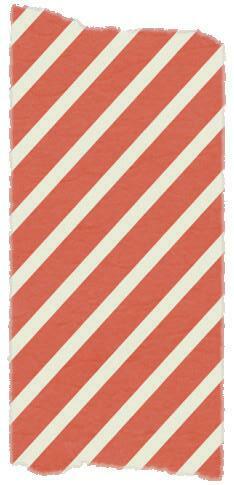
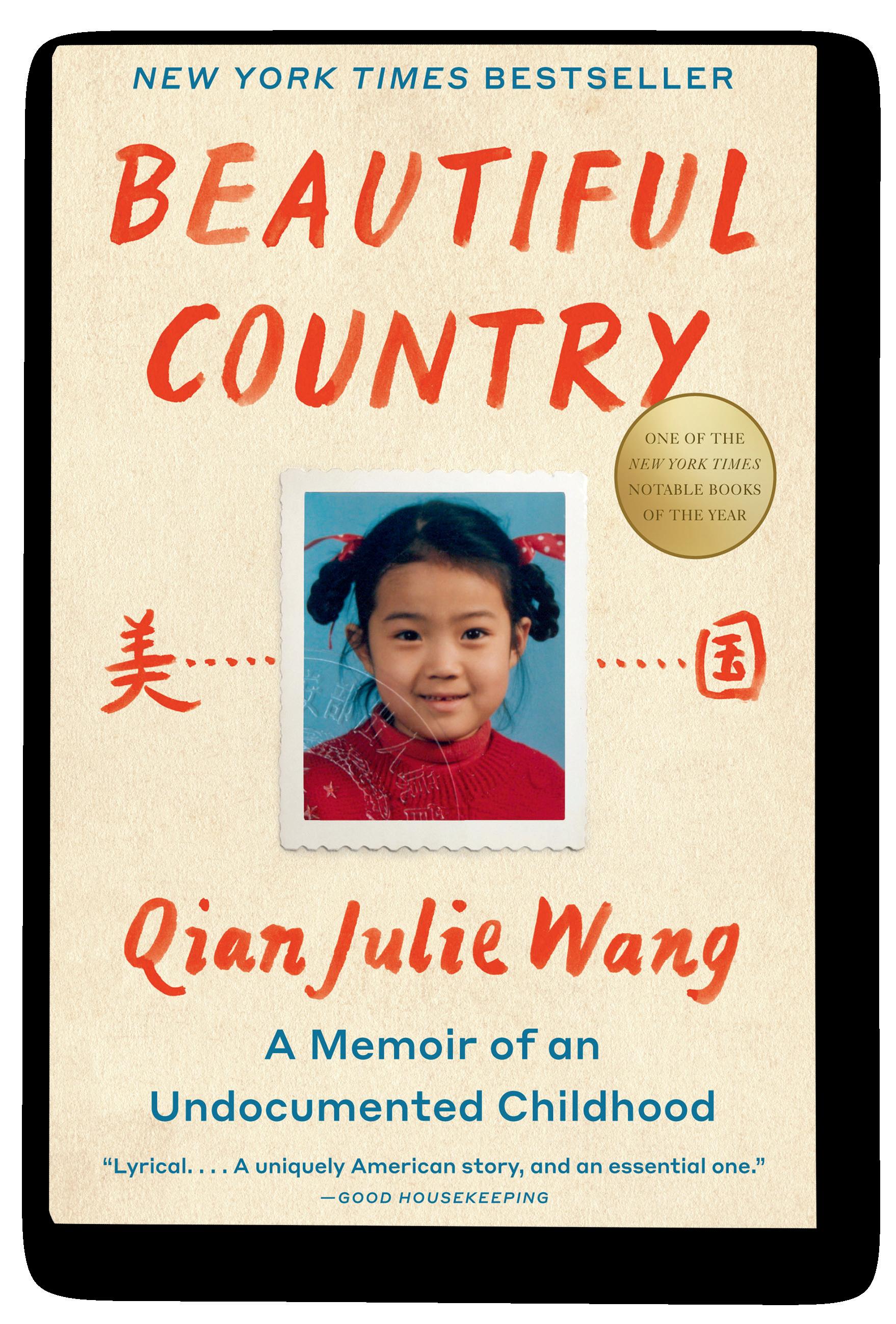

KIT
DEAR READER,


I am so very humbled that you’ve chosen my memoir for your book club. Your act of reading this book brings to life my childhood dreams.

When I first arrived in the United States in 1994, I threw myself into all the books I could find at the New York Public Library. I tore through picture books, abridged biographies, novels, and not least, series like The Baby-Sitters Club and Sweet Valley Twins. The people that populated those volumes filled my heart with love and company at a time when I felt so lonely for my family and friends back in China.
But they also confused me: why were there no stories about kids like me—undocumented immigrants, Asian Americans, children who went to school every day in hunger—when those stories were all around me? Were we so dissimilar? Were we so unloveable? When I voiced these thoughts to my mother, she told me as many times as I needed to hear it that we were just as worthy as everyone else, and that one day, I would commit to paper the stories that deserved to be read.
Around 1991, in our home in Shijiazhuang China
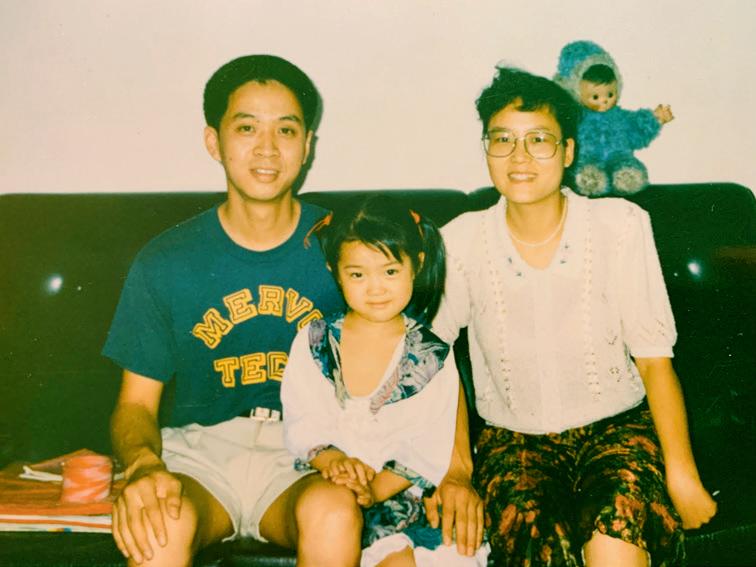
It was that vision that got me to start writing this book, and to keep writing it on my daily subway commute to work. But there was also a grander dream that buoyed it: the idea that perhaps, through exchanging our stories, we might see that none of us are really that different. We might have different material circumstanc es, sure, and different color hair and skin, but when we peel back the layers to who we really are—our greatest dreams and our deepest shames—we are not all that different. I know it is a strange thing to say about a memoir, but Beautiful Country is not about me. Or at the very least, it’s not just about me. It’s about the universality of childhood, the early-life events and emotions that still very much have a hold on each of our adult selves.
I wrote this book not to be a message but to be an immersive experience for readers—if I’ve done my job, you might open the pages to find yourself walking alongside little me, seeing every thing I saw, tasting everything I tasted. I hope that, as we embark on that special walk together, you might also begin to see glimmers of a third person next to us—your own childhood self.

I believe that the human heart is meant to be shared, and you hold in your hands a piece of mine. Thank you for carrying it. May it allow you to reclaim a piece of yours.
With love,



The day my hardcover came out:September 7, 2021 in Manhattan

DISCUSSION QUESTIONS

1. Qian had expectations about the America before she arrived. What were they, and what surprised her the most? How do her expectations line up with your understanding of the U.S. and your day-to-day view of the country?
2. How does Qian’s understanding of her race change when she comes to America? How does her understanding of other races change?
3. How is Qian treated at school by her teachers? Why is she treated differently, even within her Chinatown school where most students are Chinese immigrants, and how does it affect her view of herself and her opportunities?
4. We are shown a community of immigrants through Qian’s eyes— other people working at the sweatshops, family friends. How do their lives differ from the Wang family’s, and how are those differences discussed?
5. How does the use of pinyin, phonetic Chinese, feature in and shift throughout the book?
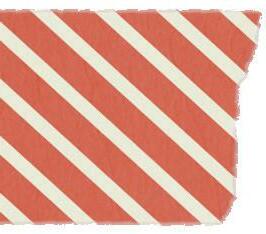
6. Qian seems to notice class for the first time when she arrives in the U.S. What are the designations of class that she pays the most attention to?
7. Books make a huge impact on Qian. Did you read any of these same books when you were younger, or read them now with children? How did they affect you?
8. Qian’s relationship with her mother changes significantly over the course of the book, from their time in China and then over time in America. How does the relationship evolve, and why do you think it changes the way that it does? Does this remind you of your own relationship with your mother in any way?
DISCUSSION QUESTIONS

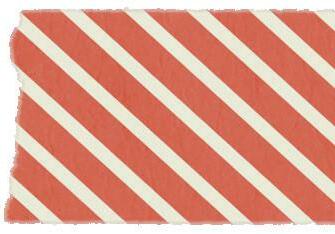

9. Personal space is discussed often in the book, both as a need and as a signifier of class. Qian has her own room for the first time at Lin Ah Yi’s. Why is it so meaningful to her, and what does it allow her?
10. One of the few connections Qian makes is with her cat, Marilyn. How does her special connection with this animal help her cope with her difficult family situation? What did your pets mean to you as a child, and how might this be different from your experience with pets as an adult?
11. What do you make of the narrator’s voice and perspective? How does it change as Qian grows older over the course of the book?
12. Has this book changed your understanding or opinion of what it means to be a citizen or to be undocumented?
13. The family has a perpetual fear of being noticed for their immigration status at school, at work, and at the hospital. How does this affect their quality of life, and what would being noticed have meant for them? How does it affect Qian, specifically, as a young girl growing up? What did being noticed mean to you when you were younger?
14. Why do you think Qian Julie chose to end the book (aside from the epilogue) at their departure from America? Did you expect the narrative to continue to the present day? What do you think is achieved by containing the narrative to those five years of undocumented life?
Thank you for sharing your story! At what point in your life did you feel ready to open up about your experience growing up undocumented?
I had always dreamed about writing this book because while I grew up learning English from library books, I never found a book that depicted characters who looked like me and lived in the way my parents and I did. It was my biggest and wildest ambition to write a book that might allow others out there to see themselves reflected in literature and have them know that it is possible to survive similar circumstances. Even so, I figured I would never make it happen because I lived under messaging from all directions, my parents included, that my past was shameful and had to be kept hidden. It wasn’t until the discourse of the 2016 election, which took place just six months after I became a naturalized U.S. citizen, that I discovered I had a newfound power and thus responsibility to share my story, that at that juncture of my life, I was making an actual decision to stay quiet—a privilege that millions of undocumented immigrants did not have. It was then that I realized that what I had long thought of as singularly mine was no longer my secret to keep.
Names can hold so much power in our identities. Can you share why you chose to go by Qian Julie and the meaning it has in your life?






There are people in my life who know me only as Qian, and others who know me only as Julie. I have recently made the decision to honor my integrity and bring together my divided selves by going forward as “Qian Julie.” I quickly found that this has not been an easy name for others to accept (although double first names are common in America—for instance, Mary Kate and Billy Joe). There is great pressure for people from marginalized communities, and particularly for immigrants and people of color, to choose between the either/or facets of their identities. I allowed that pressure to dictate how I defined myself for far too long, and in deciding to embrace both of my first names, I am very much taking the stance that I can be both/ and—that is, both Chinese and American, in absolutely equal parts. For me, Qian represent the self and the precocious, mischievous child who went from knowing only love and acceptance to living in daily shame and hunger. And Julie represents the pre-teen, teen, and woman who was
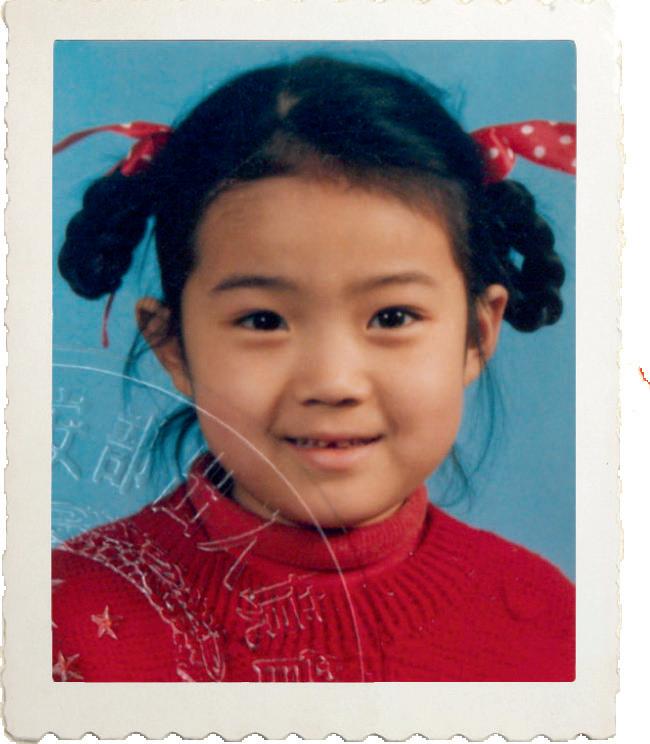 © Brendan Wixted
© Brendan Wixted
determined to survive no matter the cost, even if it meant hiding or obliterating her origin story and her authentic self. Both of these names are integral parts of me, and I can no more choose between them than I can between my left and right legs.
Your book provides such a unique perspective, seeing your experience through a young child’s eyes. What do you hope your story will leave with readers, either with or without similar experiences to your own?
I wrote Beautiful Country with the hope that readers will experience it as a train ride back into that familiar, joyful, and sometimes terrifying forest of childhood. More than an immigrant narrative or an Asian American story, at bottom, the book is an exploration of what it means to be human, and what it means to make a home. My deepest hope is that it awakens in readers a recognition that beyond superficial labels—undocumented or American-born, Asian American or not, rich or poor— there are strong, universal strands of the human experience that connect all of us. We all, I suspect, have had a teacher who was not altogether nice to us; we all have at some point felt like we did not fit in; and we all recall fondly the first time we discovered our favorite food and our favorite book. Our childhood experiences comprise the hidden force that continues to wield power over our adult selves. I hope Beautiful Country will serve as an invitation for readers to revisit their own childhood terrain anew, and consider just how much of our society might be healed if we honored the hold childhood continues to have on us and on those all around us.
I loved reading about your passion for books and the importance of stories not only in your journey in learning English but also in seeing yourself. Could you elaborate on how books provided comfort to you growing up?
For a child who found herself transported overnight to the other side of the world, where she knew no one other than her parents, books were my salvation. I knew from my father, who had been an English literature professor in China, that native fluency would be the prerequisite to finding acceptance in American society, and on this front I relied on my good friends Clifford, the Berenstain Bears, and The Very Hungry Caterpillar to introduce me to the very basics of the English language. But more than that, books gave me insight into how other Americans lived in the parts of the country to which I did not have access: series like Sweet Valley Twins and the Baby-Sitters Club showed me how “regular” American kids lived, and how I was not so different from them. Perhaps most of all though, books offered me a dependable and consistent cast of characters who would remain my friends and family no matter how far away I moved again.
What is a book that you’ve read recently that has given you hope?


I read Cathy Park Hong’s Minor Feelings at the beginning of the pandemic and then again throughout lockdown and after the Atlanta shooting. My copy is well-loved: full of highlights, annotations, and tabs.
For most of my life, I told myself that I was just oversensitive, that I read too much into things—even though “chink” was among the first English words I learned, even though I had never been
in a public space in America without fearing for my bodily safety. When I first read Minor Feelings, I was shocked to find another Asian American woman, living across the country and many years older than me, who had precise insight into all of the things that I thought I had been “oversensitive” about. Hong’s book awakened and galvanized me. I read and reread it while editing my book, and it opened my eyes to all of the ways in which growing up under white supremacy had shaped how I viewed myself and how I had invalidated the extremely valid feelings
that decades of racialized misogyny had engendered in me. Minor Feelings gave me the permission I didn’t know I needed, and it helped me dig up more of my voice, my compassion—and in the wake of antiAsian hate and Atlanta, this is a change I’ve seen in not just myself but younger Asian Americans across the nation. As utterly devastating as recent events have been, I do believe that we will look back on 2021 and see this as a marked turning point—a beginning for real and meaningful progress for the rights and equality of Asian Americans in our nation’s history.

FIVE


 by Eric Carle
by Eric Carle









 Norman Bridwell
Norman Bridwell

Craighead George

BOOKS TO READ IF YOU LOVED BEAUTIFUL COUNTRY 1. The Very Hungry Caterpillar
2. Clifford the Big Red Dog by
3. Julie of the Wolves by Jean
4. Sweet Valley Twins by Francine Pascal 5. The Baby-Sitters Club by Ann M. Martin Five Books for Younger Readers Mentioned in Beautiful Country 1. The Glass Castle by Jeannette Walls 2. I Know Why the Caged Bird Sings by Maya Angelou 3. Angela’s Ashes by Frank McCourt 4. The Undocumented Americans by Karla Cornejo Vilavicencio 5. On Earth We’re Briefly Gorgeous by Ocean Vuong
FAMILY RECIPES





My family is from north China, from a province called Hebei just outside of Beijing. Historically, most of the Chinese immigrants to America have been from the South, generally from the regions of Guangdong and Fujian province, although that has started to change in recent years. The cuisines of north and south China are very different, and I share here two 家常饭 —favorite homecooked dishes that we would have at least once a week, if not more—that remind me most of my grandmother’s kitchen growing up. Dumplings are a feature at every family gathering and celebration, and the pork-and-chive filling is among the most common and traditional. As for the stir-fried tomatoes and egg dish—well that is one that every single northern Chinese person knows how to cook—and grows to crave as they move away from home.



*Recipe caveat: Both my grandmother and my mother are master home chefs—they cook without recipes or measuring devices, so I’ve had to reverse engineer these recipes from what I’ve observed of them. I can barely cook though, so I hope these do the dishes justice!

Pork and Chive Dumpling
猪肉韭菜饺子
DIPPING SAUCE INGREDIENTS
• 2 tablespoons Chinkiang black vinegar
• 1 teaspoon ginger, grated on a microplane
• 1 tablespoon finely chopped raw or pickled garlic
DIPPING SAUCE PREPARATION
• Mix all ingredients together.
• Optional: mix in Lao Gan Ma brand spicy chili crisp to taste

FILLING INGREDIENTS
• 2 tablespoons peanut oil
• 1/2 pound Chinese chives, finely chopped
• 1/2 pound fatty ground pork
• 1 teaspoon salt, or more to taste
• 3 tablespoons sesame oil
• 2 tablespoons pork stock or water
• about 1 teaspoon ginger, minced or grated with a microplane
DUMPLING PREPARATION
• Mix all ingredients evenly in a bowl.
• Wrap in homemade (recommended for best taste) or store bought wrappers.
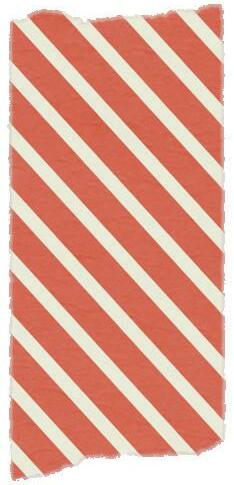
• Boil and cool. (Panfrying is great for next-day dumplings, if you’re lucky to have any leftovers!)
• Once ready, dip in dipping sauce.
Stir-fried Tomatoes with Egg
INGREDIENTS
• 6 eggs
• ½ teaspoon sesame oil


• 4 tablespoons cooking oil; peanut oil preferred but not required
• 3 scallions, sliced
• 5 cloves of garlic, sliced
• 1 pound ripe tomatoes

• Salt to taste
• Fresh steamed white rice, for serving
PREPARATION
• In a bowl, beat the eggs well.
• Cut tomatoes into wedges.
• Heat 3 tablespoons of oil in a wok (or a frying pan) on high heat. Add the eggs when oil smokes. Stir and keep in wok until eggs are just set but still a little runny (do not overcook). Take eggs out and wipe the wok.
• Reheat wok with remaining oil. When hot, add garlic and white parts of green onions and cook until aromatic. Add the tomatoes and salt to taste. Stir occasionally until the tomato flesh has softened but still maintains some shape, and the juices begin to form a sauce.
• Add the eggs, breaking it up with the end of a spatula, and stir. Add salt and sesame oil to taste.
• Garnish with green onions and serve immediately with freshly steamed rice.
西红柿炒鸡蛋




















‘90s Playlist The Spotify playlist can be found here . Or scan the code below! DESTINYS CHILD BACKSTREET BOYS TLC SPICE GIRLS SELENA 2PAC FT. DR DRE BRITNEY SPEARS JENNIFER LOPEZ AALIYAH BOYZ II MEN Say My Name I Want It That Way No Scrubs Wannabe Bidi Bidi Bom Bom California Love Baby One More Time Waiting For Tonight Are You That Somebody I’ll Make Love To You
